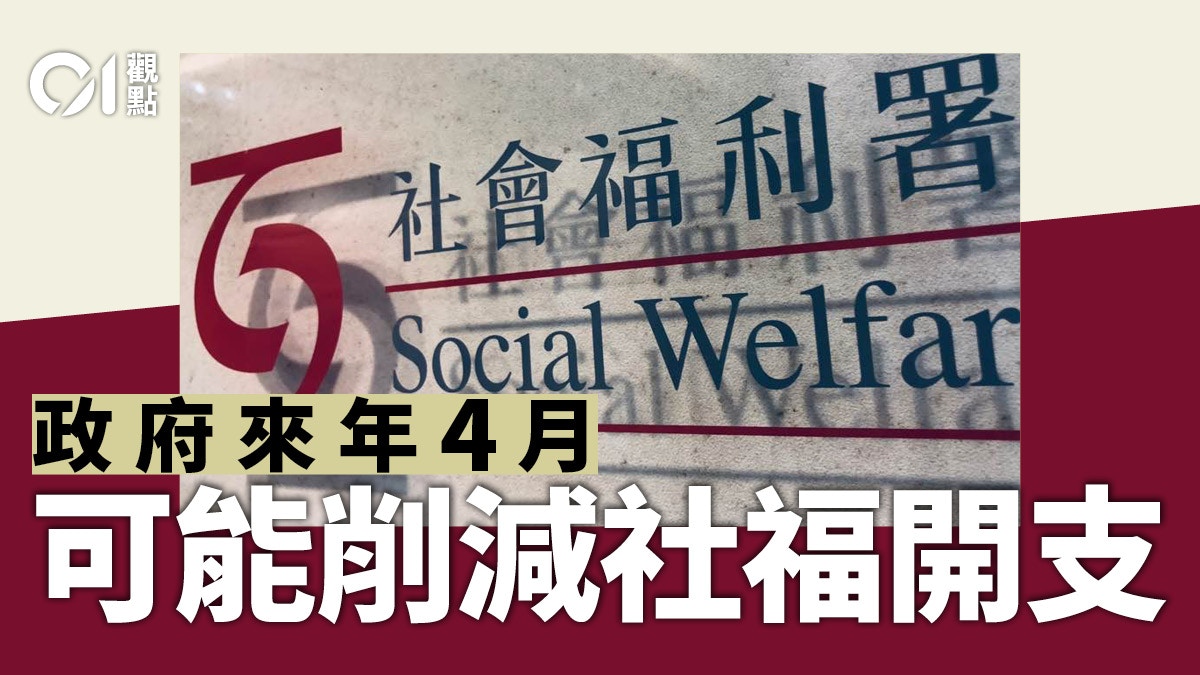On Friday (19th), a newspaper stated that the government will reduce the lump-sum grants to social welfare agencies by 1% starting in April of the following year. If it is implemented, 164 agencies receiving subsidies will be affected.
According to reports, the Hong Kong Council of Social Security has also written to the Financial Secretary, Chen Maobo, hoping to exempt social welfare subsidies. If financial considerations are concerned, it is also hoped that this measure will be a transitional measure and that it will review and restore the original funding level in the future.
The government's intention to cut expenditures on social welfare funding is actually traceable.
Since the outbreak of the epidemic, the government has always introduced various measures and subsidies to rescue the market and ensure employment. The government accounts have also become deficits to a large extent. Therefore, the Budget proposes to implement a cost-saving plan to reduce all policies. Bureau and departmental expenses.
On the premise of not affecting people's livelihood expenditure, all policy bureaux and departments must reduce their own expenditures, hoping to reduce recurrent expenditure funding by 1%, and social welfare funding is now being covered.
"Responsibility Outsourcing" Causes Social Welfare Dilemma
As far as Hong Kong is concerned, cutting social welfare may not be a worthwhile direction.
At present, when the government responds to social welfare issues, it mainly adopts a "responsibility outsourcing" approach. The government's positioning of social welfare is mainly to provide economic support, such as granting a lump sum grant to non-governmental organizations (NGOs). NGOs decide how to use funding to constitute social security.
Funding organizations for use can undoubtedly increase the flexibility of social welfare services and save the government from complicated administrative procedures. However, this kind of operation also has its drawbacks.
When Hong Kong’s social welfare protection relies on third-party provision of services, if the available funds are reduced, social welfare services will inevitably be reduced in terms of quality or quantity. The result is harmful to society.
Currently, welfare services are mainly provided by personnel, such as care staff and social workers in residential homes. Reducing social welfare will reduce the flexibility of the current staffing establishment. At the same time, it will weaken the capital of NGOs to hire suitable personnel in the labor market, which directly affects the provision of welfare services. The incomplete social welfare system has worsened the situation.
Therefore, even if government expenditure is to be reduced, it is not appropriate to start with funding for social welfare.
The Director of the Bureau of Labor and Services, Luo Zhiguang, talked about "ageing at home" in his blog, still confining his vision to "insufficient manpower supply" and "insufficient space."
(Photo by Gao Zhongming/)
The social welfare system needs to be re-planned
In view of the fact that Hong Kong's social welfare system is overly restricted by economic factors, the government must effectively respond to financial pressures and keep the treasury financially sound. The measures that can be taken are nothing more than increasing revenue and reducing expenditure.
And when the position of throttling falls above social welfare, it will only further deepen the current problem.
Therefore, the government should first avoid this and try to reduce resources in other sectors.
Cooperating with open source work, it should be possible to effectively stabilize the current social welfare system. As Financial Secretary Chen Maobo said in his blog last Sunday (7th), this year’s fiscal deficit will be much lower than the estimate at the beginning of the year. One of the reasons For some high-quality land in the urban area, the land was sold at a high price.
Some scholars even pointed out that the increase in stamp duty and the freezing of civil servants' salaries can help create revenue for the warehouse.
When the two axes of increasing income and reducing expenditure can be applied freely, there is no need to go to the place where it is needed.
Second, the current coverage of social welfare services is not comprehensive enough.
The resettlement of people in need has always been an area where many people in Hong Kong have focused on it, but the provision of support and care services is relatively inadequate.
Take the "lonely death" case in Hong Kong as an example. The deceased often has no housing problem to face, but tragedies still occur from time to time. This is enough to prove that in addition to resettling the population, there are still many aspects of social welfare that need to be considered. Achieve adequate coverage.
"Health and fairness" is the responsibility of the society. MPF transfers to annuities have not changed the poverty and plight of the elderly. Social security has seen loopholes. Comprehensive support can not be delayed. Elderly flats are exchanged and no one cares about HOS rentals, but they are very popular.








